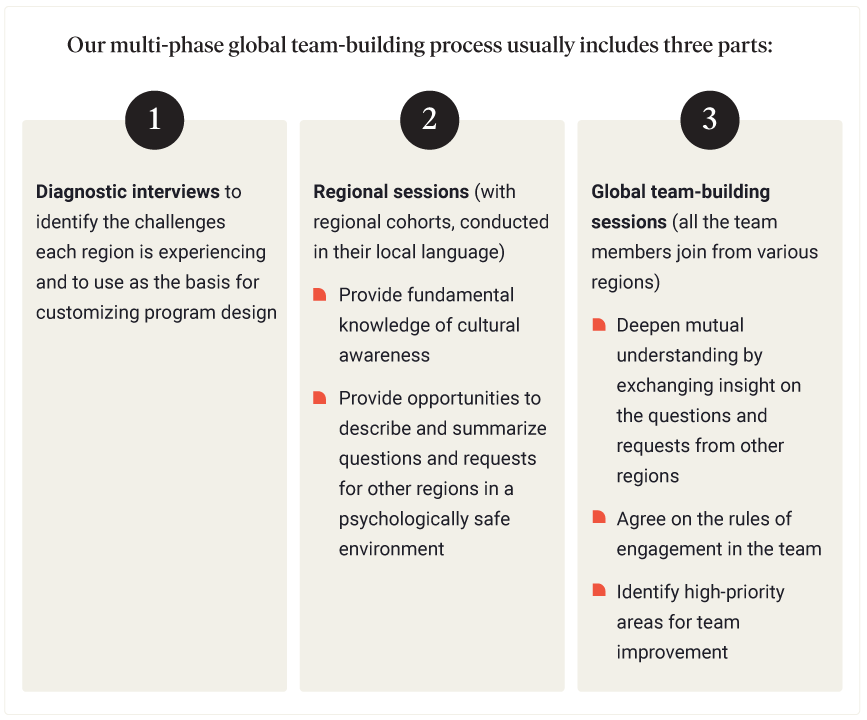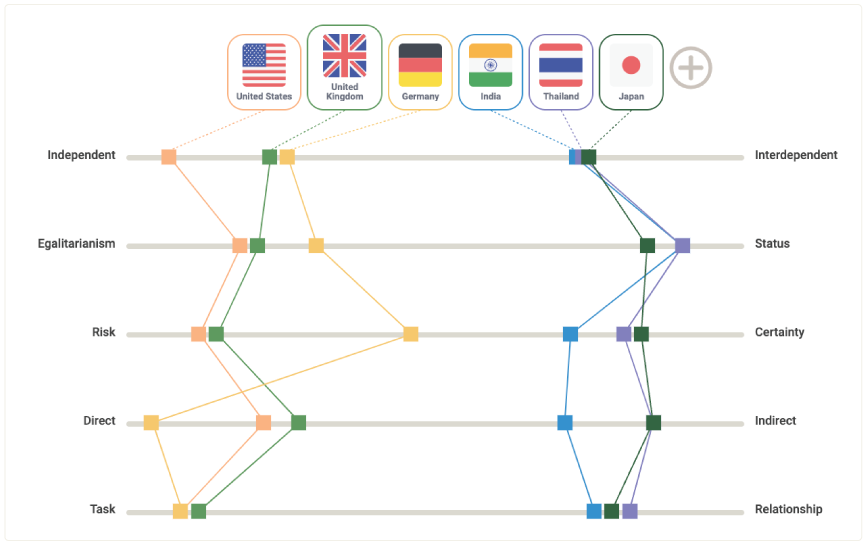


Effective global collaboration, particularly in multicultural teams, is increasingly critical for organizations to achieve their goals. Often when organizations partner with us for cultural awareness programs, their goal is to improve global collaboration, which in turn has a direct impact on improved business outcomes. Instead of simply providing a one-off training program, we recommend a multi-phase global team-building approach that will be more impactful in improving team performance.
For example, when an organization based in the United States asked us for a standard cultural awareness program focusing on Japanese culture, we asked the following questions:
Organizations almost always want this information and a process for addressing it, because it can be difficult to obtain candid insights from Japanese team members given their communication style and the language barrier. And this applies to many cultures, not only to Japanese team members. Can you tell your global colleagues, especially those who are remote: “It is difficult to work with you for these reasons.”? Probably not. It is seldom easy to directly tell your teammates, particularly those based in another region whom you don’t know very well, about the difficulties you are experiencing with them as this could likely damage your relationship.
Here is where a third-party consultant like those of us at Aperian can add value. Being external to the organization, and with multicultural facilitation expertise, we provide a team-building environment with sufficient psychological safety for team members to honestly share what they are experiencing, including their challenges, questions, requests, and advice for team members in other regions. Such information is critical to identify high-priority areas to improve global collaboration, update the rules of engagement for each team, and take practical steps toward better team performance.

Below are examples of questions and requests shared before and during the global team-building process for companies headquartered in Japan. These sessions included Japanese, U.S., and European participants:
As with these examples, participants in team-building programs are able to raise real-time issues they are experiencing in their day-to-day work, discuss practical solutions, and plan next steps. Team members may also raise even more fundamental questions they often have wondered about but never had a chance to discuss together, such as: “Who are we? Are we a Japanese company? A U.S. company? A European company? Where are we really going in this global transformation?”

Of course, it is not possible to find solutions and answers to all of these questions in one team-building session, but there is a huge benefit for participants in considering these topics with their team members, feeling that their own challenges are understood, and understanding the challenges others are experiencing. This mutual understanding fosters greater trust within the team, which is the foundation for effective global collaboration.
Our multi-phase global team-building process addresses team performance issues in a more substantive and practical way than a one-off cultural awareness program. When team-building participants experience positive impacts on their team dynamics throughout these sessions, they then become internal promoters for this team-building process and recommend it to other divisions in their company. Thanks to this positive cycle, we have been providing these multi-phase global team-building programs to hundreds of global teams in various global organizations over the past thirty years.
Learn more about how Aperian can support global team-building in your organization through this multi-phase global team-building process.